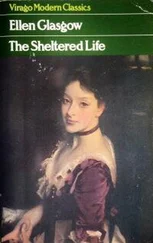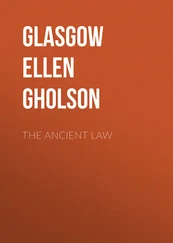Ellen Glasgow - The Builders
Здесь есть возможность читать онлайн «Ellen Glasgow - The Builders» — ознакомительный отрывок электронной книги совершенно бесплатно, а после прочтения отрывка купить полную версию. В некоторых случаях можно слушать аудио, скачать через торрент в формате fb2 и присутствует краткое содержание. Жанр: foreign_antique, foreign_prose, на английском языке. Описание произведения, (предисловие) а так же отзывы посетителей доступны на портале библиотеки ЛибКат.
- Название:The Builders
- Автор:
- Жанр:
- Год:неизвестен
- ISBN:нет данных
- Рейтинг книги:5 / 5. Голосов: 1
-
Избранное:Добавить в избранное
- Отзывы:
-
Ваша оценка:
- 100
- 1
- 2
- 3
- 4
- 5
The Builders: краткое содержание, описание и аннотация
Предлагаем к чтению аннотацию, описание, краткое содержание или предисловие (зависит от того, что написал сам автор книги «The Builders»). Если вы не нашли необходимую информацию о книге — напишите в комментариях, мы постараемся отыскать её.
The Builders — читать онлайн ознакомительный отрывок
Ниже представлен текст книги, разбитый по страницам. Система сохранения места последней прочитанной страницы, позволяет с удобством читать онлайн бесплатно книгу «The Builders», без необходимости каждый раз заново искать на чём Вы остановились. Поставьте закладку, и сможете в любой момент перейти на страницу, на которой закончили чтение.
Интервал:
Закладка:
The child went slowly forward, shaking hands politely with the guests while her steady gaze, so like her father's, sought the tea table. "May I have a puff and a tart too, mother?" she asked as she curtseyed to Mrs. Ashburton.
"No, only one, dear, but you may choose."
"Then I'll choose a puff because it is bigger." She was a good child, and when the tart was forbidden her, she turned her back on the plate with a determined gesture. "I saw the man, mother – the one with the baby. He was in the lane."
"I know, dear. He came to ask your father to take him back in the works. Perhaps if you were to go into the library and ask him very gently, he would do it. It is the case I was telling you about, a most distressing one," explained Angelica to Mrs. Ashburton. "Of course David must have reason on his side or he wouldn't take the stand that he does. I suppose the man does drink and stir up trouble, but we women have to think of so much besides mere justice. We have to keep close to the human part that men are so apt to overlook." There was a writing tablet on her knee, and while she spoke, she leaned earnestly forward, and made a few straggling notes with a yellow pencil which was blunt at the point. Even her efficiency – and as a chairman she was almost as efficient as Mrs. Ashburton – was clothed in sweetness. As she sat there, holding the blunt pencil in her delicate, blue-veined hand, she appeared to be bracing herself, with a tremendous effort of will, for some inexorable demand of duty. The tired droop of her figure, the shadow under her eyes, the pathetic little lines that quivered about her mouth – these things, as well as the story of her loveless marriage, awakened Caroline's pity. "She bears it so beautifully," she thought, with a rush of generous emotion. "I have never seen any one so brave and noble. I believe she never thinks of herself for a minute."
"I always feel," observed Mrs. Ashburton, in her logical way which was trying at times, "that a man ought to be allowed to attend to his own business."
A pretty woman, with a sandwich in her hand, turned from the tea table and remarked lightly, "Heaven knows it is the last privilege of which I wish to deprive him!" Her name was Mallow, and she was a new-comer of uncertain origin, who had recently built a huge house, after the Italian style, on the Three Chopt Road. She was very rich, very smart, very dashing, and though her ancestry was dubious, both her house and her hospitality were authentic. Alan had once said of her that she kept her figure by climbing over every charity in town; but Alan's wit was notoriously malicious.
"In a case like this, don't you think, dear Mrs. Ashburton, that a woman owes a duty to humanity?" asked Angelica, who liked to talk in general terms of the particular instance. "Miss Meade, I am sure, will agree with me. It is so important to look after the children."
"But there are so many children one might look after," replied Caroline gravely; then feeling that she had not responded generously to Angelica's appeal, she added, "I think it is splendid of you, perfectly splendid to feel the way that you do."
"That is so sweet of you," murmured Angelica gratefully, while Mrs. Aylett, a lovely woman, with a face like a magnolia flower and a typically Southern voice, said gently, "I, for one, have always found Angelica's unselfishness an inspiration. With her delicate health, it is simply marvellous the amount of good she is able to do. I can never understand how she manages to think of so many things at the same moment." She also held a pencil in her gloved hand, and wrote earnestly, in illegible figures, on the back of a torn envelope.
"Of course, we feel that!" exclaimed the other six or eight women in an admiring chorus. "That is why we are begging her to be in these tableaux."
It was a high-minded, unselfish group, except for Mrs. Mallow, who was hungry, and Daisy Colfax, who displayed now and then an inclination to giddiness. Not until Caroline had been a few minutes in the room did she discover that the committee had assembled to arrange an entertainment for the benefit of the Red Cross. Though Mrs. Blackburn was zealous as an organizer, she confined her activities entirely to charitable associations and disapproved passionately of women who "interfered" as she expressed it "with public matters." She was disposed by nature to vague views and long perspectives, and instinctively preferred, except when she was correcting an injustice of her husband's, to right the wrongs in foreign countries.
"Don't you think she would make an adorable Peace?" asked Mrs. Aylett of Caroline.
"I really haven't time for it," said Angelica gravely, "but as you say, Milly dear, the cause is everything, and then David always likes me to take part in public affairs."
A look of understanding rippled like a beam of light over the faces of the women, and Caroline realized without being told that Mrs. Blackburn was overtaxing her strength in deference to her husband's wishes. "I suppose like most persons who haven't always had things he is mad about society."
"I've eaten it all up, mother," said Letty in a wistful voice. "It tasted very good."
"Did it, darling? Well, now I want you to go and ask your father about poor Ridley and his little children. You must ask him very sweetly, and perhaps he won't refuse. You would like to do that, wouldn't you?"
"May I take Miss Meade with me?"
"Yes, she may go with you. There, now, run away, dear. Mother is so busy helping the soldiers she hasn't time to talk to you."
"Why are you always so busy, mother?"
"She is so busy because she is doing good every minute of her life," said Mrs. Aylett. "You have an angel for a mother, Letty."
The child turned to her with sudden interest. "Is father an angel too?" she inquired.
A little laugh, strangled abruptly in a cough, broke from Daisy Colfax, while Mrs. Mallow hastily swallowed a cake before she buried her flushed face in her handkerchief. Only Mrs. Aylett, without losing her composure, remarked admiringly, "That's a pretty dress you have on, Letty."
"Now run away, dear," urged Angelica in a pleading tone, and the child, who had been stroking her mother's velvet sleeve, moved obediently to the door before she looked back and asked, "Aren't you coming too, Miss Meade?"
"Yes, I'm coming too," answered Caroline, and while she spoke she felt that she had never before needed so thoroughly the discipline of the hospital. As she put her arm about Letty's shoulders, and crossed the hall to Blackburn's library, she hoped passionately that he would not be in the room. Then Letty called out "father!" in a clear treble, and almost immediately the door opened, and Blackburn stood on the threshold.
"Do you want to come in?" he asked. "I've got a stack of work ahead, but there is always time for a talk with you."
He turned back into the room, holding Letty by the hand, and as Caroline followed silently, she noticed that he seemed abstracted and worried, and that his face, when he glanced round at her, looked white and tired. The red-brown flush of the morning had faded, and he appeared much older.
"Won't you sit down," he asked, and then he threw himself into a chair, and added cheerfully, "What is it, daughter? Have you a secret to tell me?"
Against the rich brown of the walls his head stood out, clear and fine, and something in its poise, and in the backward sweep of his hair, gave Caroline an impression of strength and swiftness as of a runner who is straining toward an inaccessible goal. For the first time since she had come to Briarlay he seemed natural and at ease in his surroundings – in the midst of the old books, the old furniture, the old speckled engravings – and she understood suddenly why Colonel Ashburton had called him an idealist. With the hardness gone from his eyes and the restraint from his thin-lipped, nervous mouth, he looked, as the Colonel had said of him, "on fire with ideas." He had evidently been at work, and the fervour of his mood was still visible in his face.
Читать дальшеИнтервал:
Закладка:
Похожие книги на «The Builders»
Представляем Вашему вниманию похожие книги на «The Builders» списком для выбора. Мы отобрали схожую по названию и смыслу литературу в надежде предоставить читателям больше вариантов отыскать новые, интересные, ещё непрочитанные произведения.
Обсуждение, отзывы о книге «The Builders» и просто собственные мнения читателей. Оставьте ваши комментарии, напишите, что Вы думаете о произведении, его смысле или главных героях. Укажите что конкретно понравилось, а что нет, и почему Вы так считаете.












